India: Alteration to the definition of a Startup – a relief for the Biotech Sector
The Office of the Controller General of Patents, Designs and Trade Marks, aims to meet requirements of constantly changing IP landscape and aspires to strengthen the culture of transparency, accountability and efficiency in its management. It endeavors to establish a vibrant and balanced IP regime in the country to support the country’s innovation and developmental objectives. With these responsibilities in mind, the Office on April 23, 2018, released its Annual Report for the year 2016-17.
Afghanistan Joins Madrid Protocol as The 101st Member
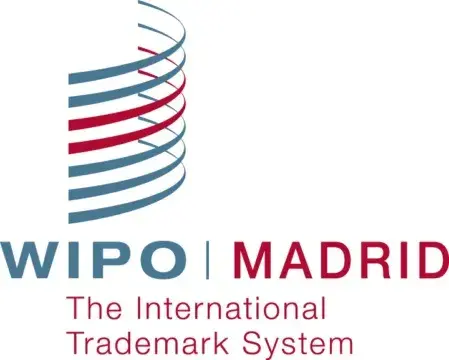 On March 28, 2018, State of Bihar earned 3 exclusive Geographical Indication Tag for agricultural products namely, Katarni Rice, Zardalu Mango and Magahi Paan.
On March 28, 2018, State of Bihar earned 3 exclusive Geographical Indication Tag for agricultural products namely, Katarni Rice, Zardalu Mango and Magahi Paan.
India: Delhi High Court grants damages worth INR 10 Lakhs for Infringement of the mark Ferrero Rocher
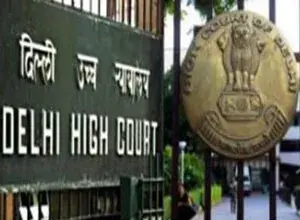 The question of acquiring rights over a color is a fascinating battleground between courts and international brands, with different squads playing with different rules. The recent one to join the league is Christian Louboutin Red Sole case in the European Court of Justice (ECJ).
The question of acquiring rights over a color is a fascinating battleground between courts and international brands, with different squads playing with different rules. The recent one to join the league is Christian Louboutin Red Sole case in the European Court of Justice (ECJ).
India: Dismissal of the Suit on the Ground of Non-Filing of Assignment of Trademarks in Favour of the Indian Company: Levi Strauss v. Rajesh Agarwal
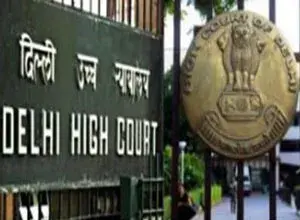 BCCI filed a suit of infringement and passing off of goods against Grace India Sports Private Limited. The notice of motion was taken out of the mentioned suit. Hon’ble Justice Kathawalla.
BCCI filed a suit of infringement and passing off of goods against Grace India Sports Private Limited. The notice of motion was taken out of the mentioned suit. Hon’ble Justice Kathawalla.
Script it!™ – Seventh All-India Essay Writing Competition Results
 On this World Intellectual Property Day, Vidya Darshan Rana Charitable Trust in collaboration with S.S. Rana & Co., is pleased to announce the conclusion of the Seventh All-India Essay Writing Competition.
On this World Intellectual Property Day, Vidya Darshan Rana Charitable Trust in collaboration with S.S. Rana & Co., is pleased to announce the conclusion of the Seventh All-India Essay Writing Competition.
World IP Week Celebrations at SS RANA & Co.
While the entire world was celebrating World IP Day with enthusiasm and fervor, SSRANA & Co did not leave any stone unturned and participated in a catena of events both in and out of the Office.
Lucy Rana of SSRana & Co. speaks on the occasion of World IP Day at USCST, Dehradun
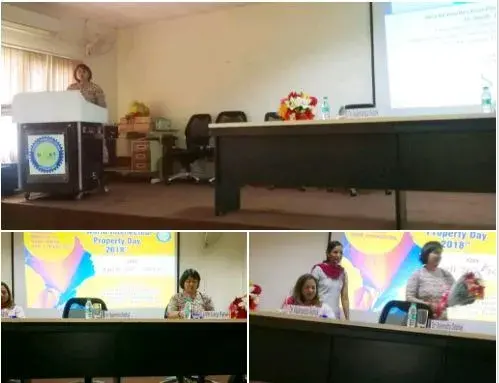 On the Occasion of World IP Day, Mrs. Lucy Rana of SSRANA & Co., spoke on “Powering Change: Women in Innovation and Creativity”, at the Uttarakhand State Council of Science and Technology.
On the Occasion of World IP Day, Mrs. Lucy Rana of SSRANA & Co., spoke on “Powering Change: Women in Innovation and Creativity”, at the Uttarakhand State Council of Science and Technology.
India: Alteration to the definition of a Startup – a relief for the Biotech Sector
The Department of Industrial Policy and Promotion (DIPP), under aegis of the Union Ministry for Commerce and Industry, has recently brought up a revised definition of start-ups.
The new definition according to DIPP notification shall now recite as :
“An entity shall be considered as a start-up up to a period of seven years from the date of incorporation / registration, if it is incorporated as a private limited company (as defined in the Companies Act, 2013) or registered as a partnership firm (registered under Section 59 of the Partnership Act, 1932) or a limited liability partnership (under the Limited Liability Partnership Act, 2008) in India”.
In reference to the biotechnology sector including medical device, the period shall be up to ten years from the date of its incorporation/ registration. The sudden increase has been made on the very fact that the companies in these two sectors take longer development process to mature.
Further, the notification revealed that the turnover of any entity for any of the financial years since the incorporation should not exceed INR 250,000,000 and that the entity should be working towards innovation, development or improvement of products or processes or services, or if it is a scalable business model with a high potential of employment generation or wealth creation.
An entity formed by splitting up or reconstruction of an existing business shall not be considered a ‘start-up’.
Going forward, a start-up being a private limited company or a limited liability partnership incorporated on or after 1st day of April 2016, but before 1st day of April 2021, can claim 100% tax exemption on profits for three out of seven years, as per the prescribed norms. There is also a provision of tax relief for issue of shares by start-ups over the fair market value, with certain conditions. However, for availing the tax relief for issue of shares over the fair market value, the aggregate amount of paid-up share capital and share premium of the start-up should not exceed 10 crore.
Afghanistan Joins Madrid Protocol as The 101st Member
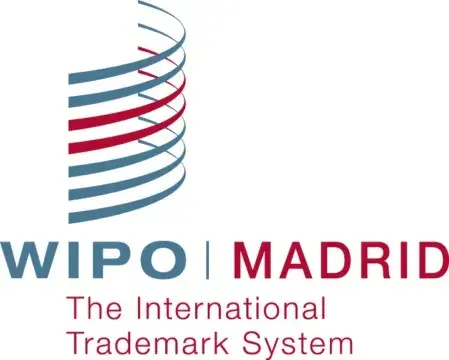
Source:www.wipo.int
The Madrid Protocol along with the Madrid Agreement, gives the legal basis to the Madrid System which is the primary method of international registration of trademarks in multiple Jurisdictions. Administered by the World Intellectual Property Organization (hereinafter referred to as “WIPO”), the Madrid Protocol allows the trademark owners of its contracting parties to seek protection of their trademarks in multiple countries by filing a single application. It is a cost effective method as it saves time and money by filing one application, rather than a bundle of national applications. Moreover, the Madrid Protocol also allows such applications to be filed in a single language and grants protection to the trademarks in multiple countries upon the payment of a single fee.
On March 26, 2018, Afghanistan deposited its instrument of accession to the Madrid Protocol at the International Bureau of the World Intellectual Property Organization making it the 101st member. The Protocol will come into force in Afghanistan on June 26, 2018. The two-letter code for Afghanistan is “AF”.
With Afghanistan’s adoption of the Madrid Protocol, the local business owners are the ones who are bound to benefit the most. From June 26, 2018 i.e. the date from which the Protocol will enter into force for Afghanistan, the local business owners in Afghanistan could seek protection of their trademark in territories of the other 100 member countries through a single application filed with the Afghanistan Central Business Registry and Intellectual Property Ministry of Commerce and Industry and payment of a single set of official fees. This will help them in significantly reducing the costs and efforts during their expansion in other countries. In addition, the foreign applicants could also obtain trademark protection for their marks by designating Afghanistan in their Madrid Application along with other member countries.
India: Delhi High Court grants damages worth INR 10 Lakhs for Infringement of the mark Ferrero Rocher
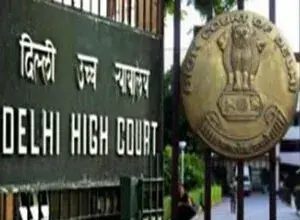
Source:www.delhihighcourt.nic.in
Recently, the Delhi High Court in the case Ferrero Spa & Nr vs M/S Ruchi International & Anr [CS(COMM) 76/2018] has ruled in favor of the Ferrero Spa (hereinafter referred to as the ‘Plaintiffs’). A suit was filed for permanent injunction and related reliefs against the infringement of the Plaintiff’s product and trade dress of FERRERO ROCHER chocolate. Defendant no. 1, who was an importer and marketer of chocolates under the brand name ‘Golden Passion’ settled the matter amicably outside Court, however, Defendant no. 2, manufacturer of the chocolates under the mark Golden Passion in China, did not appear before the Court, and an ex parte interim order was passed against him. Despite service of the same, Defendant no. 2 had not ceased the sale of the impugned product. The Court found in favor of the Plaintiff and imposed costs and damages worth INR 10 Lakhs (USD 14989 approx.).
Brief Background
In the above case, the Plaintiff is a part of the Ferrero Group, founded in 1946. Being ranked amongst the 4 biggest confectionary producers worldwide, it is the most reputable company in the world, according to the Reputation Institute Survey of 2009, as reported in the Economist and Forbes Magazines. However, the Plaintiffs conduct their business in India officially through Ferrero India Private Limited (hereinafter referred to as Plaintiff No. 2), incorporated in the year 2008.
During the pendency of the suit, there was a settlement reached between the Plaintiff and the Defendant No. 1, an importer and marketer of chocolates under the brand-name Golden Passion in India which are also look-alikes of Plaintiff’s chocolates sold under the FERRERO ROCHER trademark. Vide the settlement, a compromise decree was passed vide order dated May 26, 2016. Whereas, none appeared on behalf of Defendant No. 2, which is the entity manufacturing and exporting chocolates under the brand Golden Passion to India, the suit proceeded being treated ex- parte against him.
Major Contentions by the Plaintiffs
- The Plaintiff’s mark FERRERO ROCHER has been declared as a well-known mark by the Delhi High Court vide order dated March 13, 2004 in CS (OS) 404/2012.
- Further, the Plaintiff’s contend that the label, shape and other characteristic features of the packaging of the Plaintiff’s ‘FERRERO ROCHER’ chocolate specialties, which constitute its trade-dress are entitled to protection as being well-known marks as they satisfy the criteria mentioned in Section 11 (6) of the Trade Marks Act, 1999. The chocolate products sold by the Defendants and the packaging in which they are sold are identical to that of the packaging of the Plaintiff’s FERRERO ROCHER chocolate specialties and the striking similarity between the Plaintiff’s FERRERO ROCHER chocolates and those of the Defendant’s has been enumerated in the plaint.
- Such misuse by the Defendants of the identical and/or deceptively similar trademarks, trade dress creates a mistaken impression in the minds of consumers that:
- the Defendants products/services emanate from the Plaintiff’s themselves;
- the Defendants are permitted and authorized users of the Plaintiff’s trademark; and
- there is a nexus between the Defendants and the Plaintiffs.
- The Court vide order dated March 26, 2014, had restrained the Defendants from
- manufacturing, selling, offering for sale, advertising, directly or indirectly, dealing in any manner with the impugned Golden Chocolate product or any other product leading to infringement of the Plaintiff’s trademarks and trade-dress;
- using the trade-dress, packaging, color combination, layout, get-up designed to imitate the Plaintiffs’ FERRERO ROCHER trademark and trade-dress leading to dilution of the Plaintiff’s trademark and trade-dress and unfair competition vis-a-vis the Plaintiff’s business under the FERRERO ROCHER trademarks and trade-dress.
- Even though, an injunction order was passed against Defendant No.2, it is still continuing to sell its Golden Passion chocolates in India, as is evident from the documents. The Defendant No.2 is continuing to sell numerous products which are a look alike of the FERRERO ROCHER chocolates under the brand ROWANSA and as part of its Golden Series of chocolates.
- The acts of the Defendants in adopting and using the identical/deceptively similar impugned mark and dress in respect of identical goods has caused and will continue to cause irreparable damage and loss to the Plaintiffs business. Further, the impugned mark which forms a part of their trading name, infringes the rights of the Plaintiffs under Section 29 (5) of the Act. The Defendant No.2 is rather dealing in the goods which are identical to the goods of the Plaintiffs.
- It was initially submitted by the Plaintiffs that the Court must also grant punitive damages taking into account the mala fide conduct of the Defendants, which is clearly not proportional to the quantum of actual damages that the Plaintiff has proven through documentary evidence filed in the suit on the following factors, i.e., Defendant No.2 despite service, chose not to contest the present proceedings; and it has been in contempt of the injunction order dated May 09, .2014, and has been exporting infringing chocolates to India and making them available for sale through online websites.
Contentions by the Defendants
The Defendants did not file any written statement in the suit. They also failed to admit or deny the documents of the Plaintiffs, and thus the Court proceeded to decide the case ex parte.
Observations by the Court
The Plaintiff has suffered immense loss to goodwill and reputation and hence, is entitled to a grant of damages not only in terms of compensatory damages but also in the form of punitive damages.
Held
The Court held that since Defendant No.2 reclused itself from the proceedings, it cannot be permitted to enjoy the benefits of evasion or covert priorities as they have been selling the goods and continuing to infringe the Plaintiff’s mark. The Court passed a permanent injunction in favour of the Plaintiff and awarded damages to the Defendant No.2. where a decree for a sum of INR 10 Lakhs (USD 14989 approx.) was passed against Defendant No.2, on account of infringing the registered marks, trade dress and violating the interim order. The Plaintiffs were also entitled to interest @ 10% per annum on the damages so awarded from the date of filing of the suit till the date of realization. Proportionate costs of the suit were also awarded to the Plaintiffs and against the Defendant No.2.
India: Dismissal of the Suit on the Ground of Non-Filing of Assignment of Trademarks in Favour of the Indian Company: Levi Strauss v. Rajesh Agarwal
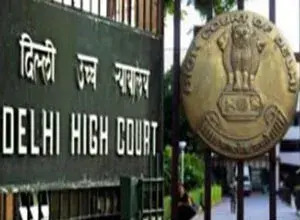
Source:www.delhihighcourt.nic.in
Recently, Hon’ble Justice Pratibha Singh of the Delhi High Court in the case of Levi Strauss & Co. v. Rajesh Agarwal, held that the dismissal of the suit on the ground of non-filing of assignment of trademarks in favour of the Indian Company, was erroneous and contrary to law as the Indian Company along with the Holding Company ought to be treated as `one economic entity’.
Brief Facts
- Levi Strauss (hereinafter referred as ‘the Plaintiff’) is the registered proprietor of the trade marks “LEVI’S”, “LEVI STRAUSS”, derivatives and labels thereof.
- It claims to be using the trade mark since 1850 and claims to be one of the well-known brands for wearing apparels, particularly jeans.
- The Plaintiff filed the suit for permanent injunction in the Delhi District Court restraining the infringement of trademark, copyright and passing off in respect of the Plaintiff’s trademark “LEVI’S”, “LEVI STRAUSS”, derivatives and labels thereof (hereinafter `trade marks’).
- According to the plaint, the Defendant was selling wearing apparels bearing identical logos and devices as of the Plaintiff. The Plaintiff, thus, prayed for permanent injunction and damages.
- Firstly, on October 3, 2001, an ex-parte ad-interim injunction was granted which continued until the disposal of the suit. In addition, a Local Commissioner was also appointed to visit the premises of the Defendant located at Hyderabad to make an inventory of the infringing products. The said Local Commissioner had filed his report on October 6, 2001.
- By an order of the Ld. Additional District Judge dated November 28, 2006 (hereinafter referred to as ‘impugned order’) the suit filed by Levi Strauss was dismissed. The grounds of refusal were:
- The Local Commissioner, who had sized the infringing goods of the Defendant at Hyderabad, had not been examined by the Plaintiff.
- No assignment was placed on record to show that the Plaintiff Company had assigned its mark to Levi’s Strauss India Pvt. Ltd., an affiliate entity of the Plaintiff in India.
- Thus, resulting in this appeal. Vide order dated May 28, 2007, in the present appeal, it was directed that the injunction granted on October 3, 2001 would continue. Thereafter, the appeal was admitted on October 23, 2007.
Issues
- Whether the Defendant is guilty of infringing Plaintiff’s trademark?
- Whether the non-filing of the assignment of the trademarks in favour of the Indian Company was erroneous in the eyes of the law?
Infringing Marks
The original labels bearing the infringing marks, seized from the Defendant premises:
Plaintiff’s Contentions
- It was submitted that the impugned order is erroneous in its findings. It relied on Order 26 Rule 10 (2) of the Code of Civil Procedure (hereinafter referred to as the ‘CPC’) to support its contention that the Commissioner’s report is evidence in the suit and can be admitted as evidence even without the Commissioner being examined.
-
Further, regarding the sales and advertising expenditure as also the assignment in favour of the Indian subsidiary is concerned, it submitted
“that the Plaintiff entity which has filed the suit is itself the registered proprietor of the trademarks and has been using the said marks globally either by itself or through its various affiliates and subsidiaries across the world. The Plaintiff and all its affiliate/associate companies ought to be treated as one economic entity, inasmuch as the businesses are conducted by the Plaintiff in different countries through such companies but the marks are continued to be owned by the Plaintiff itself. Thus, affiliates and subsidiaries use the marks with the permission from the Plaintiff and there is no requirement of showing any assignment in favour of such affiliated/subsidiary companies”.
Defendant’s Contentions
The Defendant did not appear. Hence, the suit proceeded ex-parte.
Court’s Decision
- The Court took note of the detailed report dated October 12, 2001, filed by the Local Commissioner. “In the said report, the Commissioner categorically records that there were 57 pairs of jeans bearing the infringing marks and logos which were found at the premises of the Defendant which were bearing the infringing marks and labels. The said infringing products were handed over on superdari to the Defendant. The Local Commissioner has also placed on record the original labels bearing the infringing marks, seized from the Defendant premises”.
- Further, it held that “the Local Commissioner is in fact a representative of the Court itself and it is for this reason that Order 26 Rule 10 (2) of CPC clearly provides that once the Commissioner has filed the evidence along with his report the same shall be treated as evidence in the suit and shall form part of the record”.
- Relying on Harbhajan Singh v. Smt. Shakuntala Devi Sharma and Misrilal Ramratan Mansukhlal v. A. S. Shaik Fathimal,it held that in the absence of any challenge by the Defendant to the report of the Local Commissioner, the law does not require its examination.
- Relying on the concept of `one economic entity’ as enunciated in Kiran Jogani & Anr. 2004 (28) PTC 347 (Del), it held that the dismissal of the suit on the ground of the non-filing of the assignment of the trademarks in favour of the Indian Company, was erroneous and contrary to law as “in this day and age where businesses are conducted globally, it cannot be held that carrying on of business through local affiliates precludes protection of trademarks and other intellectual property of the original owner. Irrespective of the entities using the marks in various countries and territories due to business exigencies, the marks used are the same and are entitled to be protected. The business in different countries, for the purpose of protection of trade marks, is to be taken as a `single source’ as the fundamental concept of trade marks is to act as a `source identifier’. The brands and marks signify the source and in turn signify quality products. The trust that is placed by the consumers is in the brand or the marks which transcend beyond the names of the entities selling or advertising the products locally.” Finding the case to be of identical copying, the Court allowed the appeal, awarding permanent injunction against the Defendant and costs of INR 14,750/- (USD 180 approx.) in favour of the Plaintiff.
Recently, Hon’ble Justice Pratibha Singh of the Delhi High Court in the case of Levi Strauss & Co. v. Rajesh Agarwal, held that the dismissal of the suit on the ground of non-filing of assignment of trademarks in favour of the Indian Company, was erroneous and contrary to law as the Indian Company along with the Holding Company ought to be treated as `one economic entity’.
Brief Facts
- Levi Strauss (hereinafter referred as ‘the Plaintiff’) is the registered proprietor of the trade marks “LEVI’S”, “LEVI STRAUSS”, derivatives and labels thereof.
- It claims to be using the trade mark since 1850 and claims to be one of the well-known brands for wearing apparels, particularly jeans.
- The Plaintiff filed the suit for permanent injunction in the Delhi District Court restraining the infringement of trademark, copyright and passing off in respect of the Plaintiff’s trademark “LEVI’S”, “LEVI STRAUSS”, derivatives and labels thereof (hereinafter `trade marks’).
- According to the plaint, the Defendant was selling wearing apparels bearing identical logos and devices as of the Plaintiff. The Plaintiff, thus, prayed for permanent injunction and damages.
- Firstly, on October 3, 2001, an ex-parte ad-interim injunction was granted which continued until the disposal of the suit. In addition, a Local Commissioner was also appointed to visit the premises of the Defendant located at Hyderabad to make an inventory of the infringing products. The said Local Commissioner had filed his report on October 6, 2001.
- By an order of the Ld. Additional District Judge dated November 28, 2006 (hereinafter referred to as ‘impugned order’) the suit filed by Levi Strauss was dismissed. The grounds of refusal were:
- The Local Commissioner, who had sized the infringing goods of the Defendant at Hyderabad, had not been examined by the Plaintiff.
- No assignment was placed on record to show that the Plaintiff Company had assigned its mark to Levi’s Strauss India Pvt. Ltd., an affiliate entity of the Plaintiff in India.
- Thus, resulting in this appeal. Vide order dated May 28, 2007, in the present appeal, it was directed that the injunction granted on October 3, 2001 would continue. Thereafter, the appeal was admitted on October 23, 2007.
Issues
- Whether the Defendant is guilty of infringing Plaintiff’s trademark?
- Whether the non-filing of the assignment of the trademarks in favour of the Indian Company was erroneous in the eyes of the law?
Infringing Marks
The original labels bearing the infringing marks, seized from the Defendant premises:
Plaintiff’s Contentions
- It was submitted that the impugned order is erroneous in its findings. It relied on Order 26 Rule 10 (2) of the Code of Civil Procedure (hereinafter referred to as the ‘CPC’) to support its contention that the Commissioner’s report is evidence in the suit and can be admitted as evidence even without the Commissioner being examined.
- Further, regarding the sales and advertising expenditure as also the assignment in favour of the Indian subsidiary is concerned, it submitted “that the Plaintiff entity which has filed the suit is itself the registered proprietor of the trademarks and has been using the said marks globally either by itself or through its various affiliates and subsidiaries across the world. The Plaintiff and all its affiliate/associate companies ought to be treated as one economic entity, inasmuch as the businesses are conducted by the Plaintiff in different countries through such companies but the marks are continued to be owned by the Plaintiff itself. Thus, affiliates and subsidiaries use the marks with the permission from the Plaintiff and there is no requirement of showing any assignment in favour of such affiliated/subsidiary companies”.
Defendant’s Contentions
The Defendant did not appear. Hence, the suit proceeded ex-parte.
Court’s Decision
- The Court took note of the detailed report dated October 12, 2001, filed by the Local Commissioner. “In the said report, the Commissioner categorically records that there were 57 pairs of jeans bearing the infringing marks and logos which were found at the premises of the Defendant which were bearing the infringing marks and labels. The said infringing products were handed over on superdari to the Defendant. The Local Commissioner has also placed on record the original labels bearing the infringing marks, seized from the Defendant premises”.
-
Further, it held that “the Local Commissioner is in fact a representative of the Court itself and it is for this reason that Order 26 Rule 10 (2) of CPC clearly provides that once the Commissioner has filed the evidence along with his report the same shall be treated as evidence in the suit and shall form part of the record”.
-
Relying on Harbhajan Singh v. Smt. Shakuntala Devi Sharma and Misrilal Ramratan Mansukhlal v. A. S. Shaik Fathimal,
it held that in the absence of any challenge by the Defendant to the report of the Local Commissioner, the law does not require its examination. - Relying on the concept of `one economic entity’ as enunciated in Kiran Jogani & Anr. 2004 (28) PTC 347 (Del), it held that the dismissal of the suit on the ground of the non-filing of the assignment of the trademarks in favour of the Indian Company, was erroneous and contrary to law as “in this day and age where businesses are conducted globally, it cannot be held that carrying on of business through local affiliates precludes protection of trademarks and other intellectual property of the original owner. Irrespective of the entities using the marks in various countries and territories due to business exigencies, the marks used are the same and are entitled to be protected. The business in different countries, for the purpose of protection of trade marks, is to be taken as a `single source’ as the fundamental concept of trade marks is to act as a `source identifier’. The brands and marks signify the source and in turn signify quality products. The trust that is placed by the consumers is in the brand or the marks which transcend beyond the names of the entities selling or advertising the products locally.” Finding the case to be of identical copying, the Court allowed the appeal, awarding permanent injunction against the Defendant and costs of INR 14,750/- (USD 180 approx.) in favour of the Plaintiff.
Script it!™ – Seventh All-India Essay Writing Competition Results

On this World Intellectual Property Day, Vidya Darshan Rana Charitable Trust in collaboration with S.S. Rana & Co., is pleased to announce the conclusion of the Seventh All-India Essay Writing Competition.
We are extremely delighted to receive such an overwhelming response from students of various colleges from all over India who participated in the said essay completion based on the World IP Day theme – Powering change: Women in innovation and creativity. This year, the underlying idea behind observing the World IP Day is to explore how the world is changing and accepting and empowering more and more women as a part of the world of innovation and creativity. Women have always been played an active role in the field of innovation and creativity. From multiple Nobel Prize-winning scientist Marie Curie, to Stephanie Kwolek, inventor of Kevlar fiber used in bullet-proof vests; from filmmaker and two-time Academy Award winner Sharmeen Obaid-Chinoy, to art legend Frida Kahlo, from Pratibha Ghai, the innovator of “atomic resolution environmental transmission electron microscope (ETEM),” which can perceive chemical reactions at an atomic scale, to Kiran Mazumdar Shaw, the owner of bio-pharma enterprize, Biocoin are all dynamic women contributors in the field of IPR, innovation and creativity.
The Merriam-Webster dictionary has chosen “feminism” as its word of the year, and it has certainly been an extraordinary 12 months for women. Women have done some groundbreaking innovations and have successfully challenged preconceptions and stereotypes and provided inspiration. Their innovations took myriad forms, from the mundane to the seemingly miraculous. 26th April only celebrates the brilliance, ingenuity, curiosity, and courage of women who drive change in our world and shape our common future.
India being a cornucopia of knowledge, capabilities and skill has left no stone unturned in protecting its creativity. In the recent times Indian Judiciary has delivered such judgments in the sphere of Intellectual Property which apart from expanding its scope in India have also been exemplary worldwide. India has taken significant steps to bridge the gender gap in the field of innovation, creativity and IPR. One of the best examples of the efforts taken by Indian Government is the Women Scientist Scheme under Kiran-IPR. The Scheme empowers women who are qualified in science but were not able to pursue a career in science due to domestic and social reasons. The scheme aims to train these women scientists in the area of Intellectual Property Rights (IPR) and their management for a period of one year and eventually develop a pool of women scientists geared up in creating, protecting and managing intellectual property in India.
We however look forward to more such milestones by the Indian Government which strikes a balance between male and female contributors in the field.
In addition, on the occasion of World IP Day Tish Berard, INTA President, states that,
‘Leading by example is a compelling way to demonstrate that women in IP should take more leadership positions and become more involved in their firms and in their specific business domains. Education is equally important, as women should be able to effectively communicate their value to their firms and to others’.
Additionally, we would also like to bring to notice that the total entries we received approximately 60% were submitted by female. Therefore, proving that India is changing, and this year is indeed a year of feminism.
Script it!TM- The Results
Of the multiple entries received, we have shortlisted the winning entries –
The winners of the Competition are –
CATEGORY 1: SCHOOLS
- Ms. Nandini Kumar, of Doon International School, Dehradun who wrote on the topic, ‘Tackling Gender Bias in Creativity’
- Ms. Sofiya Khanam of Shri Ajit Vidhya Mandir Sikhshan Sansthan, Sirohi, who wrote on the topic, ‘Women in Innovation and Creativity’. Emerging Trends in Intellectual
- Ms. Vanshika Malviya, of Shri Ajit Vidhya Mandir Sikhshan Sansthan, Sirohi, who wrote on the topic, ‘Innovation, Creativity and Women Empowerment’.
CATEGORY 2: COLLEGES
- Mr. Tawsif Ansari, of Excel Engineering College, who wrote on the topic, ‘Powering Change: Women in the field of Innovation and Creativity.’
- Ms. Arifa Khan, of P.G. College of Law, Osmania University, who wrote on the topic, ‘Powering Change: Women in the field of Innovation and Creativity’.
- Mr. Ashish Gupta, of CPJ College of Higher Studies, who wrote on the topic, ‘Boosting Women in IP’
Heartiest Congratulations on behalf of S.S. Rana & Co., and Vidya Darshan Rana Charitable Trust to all the winners, with the top three ranked students winning prizes worth INR 7,500, INR 5,000 and INR 2,500 respectively in
college category and worth INR 5,000, INR 2,500 and INR 1,000 in
school category.
The winners in the college category will also get a chance to intern with our firm for a period of one month.
All participants shall receive a participation certificate from the firm.
In a special mention we would like to Thank below mentioned institutes for encouraging such participation from students and would expect the same in the future. The institutes are:
- Lovely Professional University
- Osmania University
- Jamia Milia Islamia University
- Shri Ajit Vidhya Mandir Sikhshan Sansthan
- Delhi Public School
- Chennai Public School
- Doon International School
World IP Week Celebrations at SS RANA & Co.
While the entire world was celebrating World IP Day with enthusiasm and fervor, SSRANA & Co did not leave any stone unturned and participated in a catena of events both in and out of the Office
To kickstart the day in office, and as part of our commitment to employee engagement we celebrated World IP Day with a twist this year, engaging all IP minds to create some IP of their own, as the Human Resources Department organized three events throughout the day, from a Banner making competition surrounding the theme of ‘Innovation’, to a poetry competition about how creativity and ingenuity touches our daily lives. The event in office was finally concluded with a ‘Complete the Story’ Competition where one topic was allotted to all participants, and they had to create a new storyline from where the last team left off!!
Elsewhere, since the primary reason for celebrating and popularizing this day was to spread awareness about Intellectual Property, we made it a point to acknowledge the role played by women in driving change, at the Uttarakhand State Council of Science and Technology, Dehra Dun, where Mrs. Lucy Rana elaborated on how we need a future where we see an increasing number of women and girls in creative and technological fields and how we need to give credit to those individuals with the imagination and creative energy to bend our view of the world.
Finally, carrying forward our unique initiative since the past 6 years, this year we again organized Script It,TM, an Essay Competition for School and College Students to give the young minds of the country an opportunity to understand the role played by intellectual property rights!! A truly eventful IP Day!!
Lucy Rana of SSRana & Co. speaks on the occasion of World IP Day at USCST, Dehradun
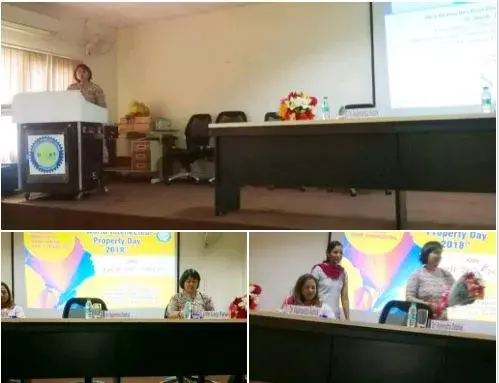
On the Occasion of World IP Day, Mrs. Lucy Rana of SSRANA & Co., spoke on “Powering Change: Women in Innovation and Creativity”, at the Uttarakhand State Council of Science and Technology.
Keeping in line with this years’ theme Mrs. Rana spoke on how we need to acknowledge the brilliance, ingenuity, curiosity and courage of women who are the driving change in our world and shaping our common future. The hope for the future is that we will encourage an increasing number of women and girls in creative and technological fields and give credit to those individuals with the imagination and creative energy to bend our view of the world.
On behalf of SSRANA & Co., she also thanked the Uttarakhand State Council of Science and Technology for organizing this event and attempting to raise awareness about the value of creative expression.

